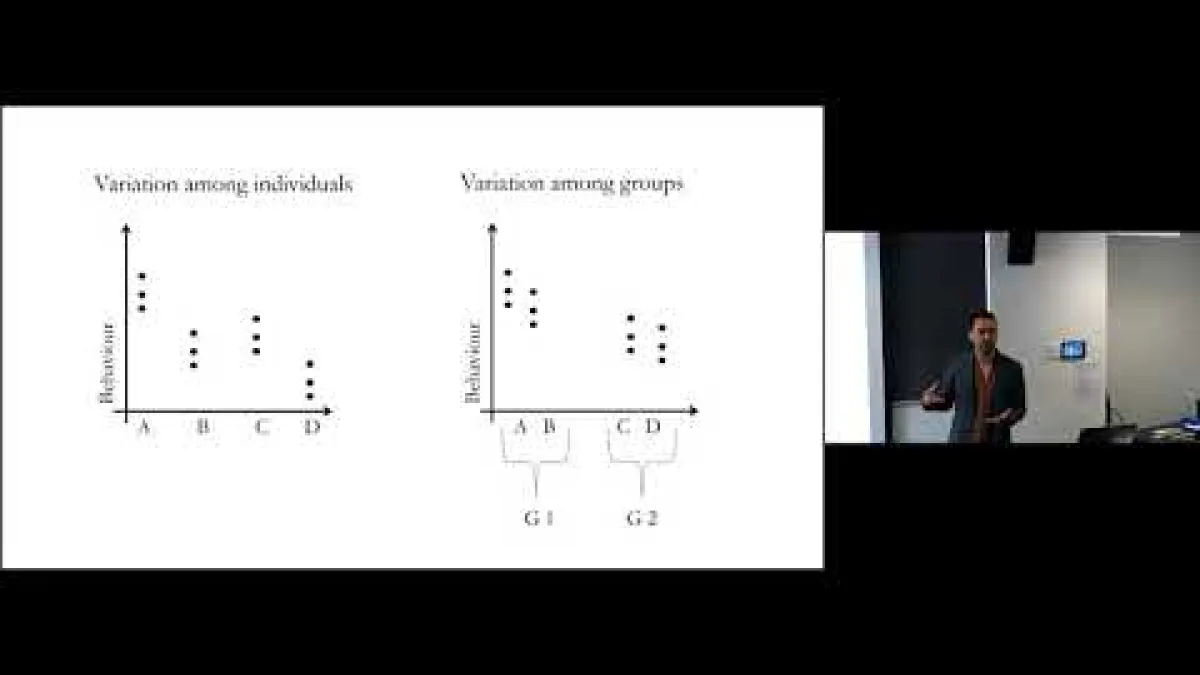E&E PhD Exit Seminar: Personality, sociality, and democracy: insights from a wild kangaroo population
The study of animal ‘personality’, or consistent individual differences in behaviour, has received much attention in the last two decades, but several important questions remain unclear.
Speakers
Event series
Content navigation
Description

The study of animal ‘personality’, or consistent individual differences in behaviour, has received much attention in the last two decades, but several important questions remain unclear. In particular, how important is individual personality in shaping behaviour, relative to the effects of an individual’s group social environment? How early in life are consistent differences between individuals in their behaviour detectable? And what is the interplay between individual and group effects on behavioural variation; in particular, for social species, is variation between groups in behaviour shaped by all individuals in a group, or by the personalities of key individuals? In this thesis, I address these issues using a study of a population of wild eastern grey kangaroos (Macropus giganteus Shaw 1790) in Victoria, Australia, in which marked individuals have been monitored since 2008. Eastern grey kangaroos are social animals living in fusion-fission groups and previous work has shown evidence of repeatable individual variation in behaviour, or ‘personalities’. However, previous personality analyses in this species did not consider the role of between-group variance in behaviour, and were limited to adult females. There is also very little known – for any species – about the effect of between-mother variance on the behavioural differences found between individuals, and hence of the contribution of maternal effects to the magnitude of repeatability. I used a combination of experimental tests and behavioural observations to address three main questions:
(1) Is individual repeatability stronger than between-group variance in behavioural responses to a series of experimental stimuli?
(2) How early in life is between-individual variance in behaviour apparent, and to what extent is it shaped by maternal-level effects causing differences between offspring of different mothers?
(3) Are group-level responses driven by collective behaviour of all individuals in the group, or by particular individuals' behaviour?
My thesis provides a comprehensive illustration of the importance of considering social context when studying animal behaviour in the wild, building on and contributing to work in the fields of behavioural and evolutionary ecology.
Location
Please note: this seminar will be held in the Eucalyptus Rm and via Zoom, details are included below.
Eucalyptus Room, Rm S205, Level 2, RN Robertson Building (46)
Please click the link below to join the webinar:
https://anu.zoom.us/j/85773167442?pwd=dEdYL2tnK0VTTTJpRmd1cHJINnhSUT09
Passcode: 418066


